Early Career Researchers
Young Individual Research Grant (YIRG) 2021

Samsudin Firdaus
Engineering IgM antibodies through multiscale modelling and simulations for cancer therapeutics and detection.
- Mentored by: Dr. Bond Peter
View Bio
Research Focus

Su Tran To Chinh
“Stop Going Nuts”: Intervention strategies to IgE-mediated mast cell activation from in-depth computational structural modelling and cross-linking mass spectrometry
- Mentored by: Dr. Berezovsky Igor
Research Focus

Marzinek Jan
Engineering effective flavivirus like particles: A novel vaccination approach.
- Mentored by: Dr. Bond Peter
View Bio
Research Focus
Career Development Award (CDA) Awardees - 2021

Li Jianguo
Rational design of membrane active antimicrobials against multi-drug resistant gram-negative bacteria.
- Mentored by: Dr. Chandra Verma
Research Focus
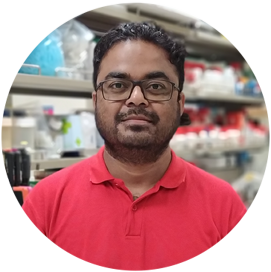
Alfatah Mohammad
Identification and characterization of novel anti-aging compounds.
- Mentored by: Dr. Eisenhaber Frank
Research Focus

Wei-Ven Tee
Protein Function Modulation for Therapeutic Interventions.
- Mentored by: Dr. Berezovsky Igor
Research Focus
Li Jianguo
 |
LI Jianguo Senior Research Scientist Email: lijg@bii.a-star.edu.sg Research Focus: Membrane Biophysics and Drug Delivery |
I obtained my Bachelor and Master’s degree from Tianjin University, China and my PhD in Chemical Engineering from National University of Singapore (NUS). Prior to joining Bioinformatics Institute, I completed two years postdoc in Singapore-MIT Alliance (SMA) and subsequently worked as a Senior Research Fellow in the Singapore Eye Research Institute (SERI), where I participated in a large Transitional Clinic Research (TCR) program and developed a multi-disciplinary research expertise in both simulation and experiments. I was awarded with several grants such as the SingHealth start-up grant (2013-2015), a NMRC/NIG grant (2014-2017), a DUKE-NUS Eye ACP internal grant (2018-2019) and recently an A*STAR Career Development Award (CDA).
Research Interests
The research objective is to use our extensive expertise in both simulation and experiments to solve complex chemical and medical problems, with a particular focus on membrane related research such as development of membrane active antibiotics and delivery of drugs across the cytoplasmic membrane. We use multiple tools to rationalize the antibiotic development, such as in silico modelling and simulations (e.g., molecular dynamics and Monte Carlo), in vitro validation (e.g., MIC assay, time killing etc.), organic synthesis, biophysical characterization (fluorescence experiments, ITC etc.) and in vivo evaluation (e.g., mouse infection model, through collaboration with SERI). The insights obtained from different angles can greatly accelerate the drug development process. Besides, we are also interested in understanding protein structural dynamics, protein-ligand binding and protein-protein interactions using modelling and simulations.
Alfatah Mohammad
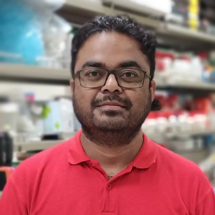 |
ALFATAH Mohammad Senior Post-Doctoral Research Fellow Email: alfatahm@bii.a-star.edu.sg Research Focus: Aging Biology Intervention Research |
Dr Mohammad Alfatah completed the Master in Biotechnology at Jamia Hamdard University, New Delhi, India. He was awarded Council of Scientific and Industrial Research and Indian Council of Medical Research fellowships to pursue the research. He studied Doctor of Philosophy at the CSIR-Institute of Microbial Technology, Chandigarh and received his PhD degree in Biological Sciences from Jawaharlal Nehru University, New Delhi, India. He joined the A*STAR Bioinformatics Institute (BII) in 2015 as a postdoctoral research fellow. He was awarded the 2020 A*STAR Career Development Award (CDA) and U.S. National Academy of Medicine Healthy Longevity Global Award (2021). Alfatah is currently leading his group in BII since April 2021.
Research Interests
Alfatah Lab goal is to discover novel interventions for prolonging disease-free life through leading research in aging biology. Aging is the biggest risk factor for various human pathologies, including cancer, neurodegeneration, cardiovascular disease and diabetes. Alfatah Lab identifies antiaging compounds by screening the small molecules, natural products, and FDA-approved drugs repurposing. This includes developing robust high throughput screening methods, discovery-driven approaches integrating with functional and chemical genetics profiling, identification of genes, proteins, and biological processes involved in the biology of aging. The novel antiaging compounds will be utilized in several applications, including food supplements and pharmaceutical ingredients, to delay aging and prolong healthspan.
Marzinek Jan
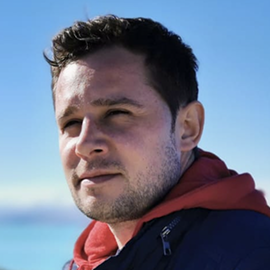 |
MARZINEK Jan Senior Post-Doctoral Research Fellow Email: marzinekj@bii.a-star.edu.sg Research Focus: Engineering Effective Flavivirus Like Particles – A Novel Vaccination Approach |
Jan was awarded a Marie Curie ITN scholarship by European Commission to study his PhD in computational chemistry at Imperial College London (ICL), UK, where he embarked on a joint project between ICL and Unilever R&D (Sharnbrook, UK). He completed his PhD in 2014, and in the same year, he started his Post-doctoral research at National University of Singapore (NUS). Based in the Bioinformatics Institute (BII) his work focused on the flavivirus life cycle using multiscale simulations techniques and integration of multiple biophysical experiments, a project funded by a Tier 3 grant consortium from the Ministry of Education. In 2018 he moved to the MSMD group in BII, funded by a Competitive Research Programme grant from the National Research Foundation, to work on integrative experimental and computational approaches to flavivirus-antibody interactions. In 2021 he was awarded the Advanced Manufacturing and Engineering Young Investigator Research Grant (AME YIRG) for his proposal: “Engineering Effective Flavivirus Like Particles – A Novel Vaccination Approach”.
Research Interests
To date, Jan’s research interests involve virus and virus like particle dynamics: structure refinement, antibody binding, epitope exposure, conformational changes and integration of computational models with biophysical experiments.
Su Tran-To Chinh
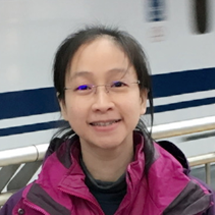 |
SU Tran-To Chinh Research Scientist Email: chinhsutranto@bii.a-star.edu.sg Research Focus: Algorithms & Models of Protein Machinery |
Chinh joined Bioinformatics Institute in 2014 after obtaining her PhD in Computational Biology from the School of Computer Science and Engineering, Nanyang Technological University. Chinh’s research areas focus on antibody and viral protein structural modeling and design, to which her work leverages on the fascinating interfaces of computational algorithms and structural models of protein complexes and interactions.
Chinh was awarded the BioMedical Research Council Young Investigator Grant (2015-2018) and the National Medical Research Council Open Fund Young Individual Research Grant (2021-2024) for research on structural modeling of proteins and their complexes to guide therapeutic interventions.
Research Interests
My group seeks to understand underlying mechanisms of how proteins of interest interact and how to modulate their interactions. We aim to look at protein interactions via the community concepts combined with protein structural dynamics at atomistic details. For instances, we apply network analysis on structural conformations of protein complexes to explore the communication networks at their interfaces. Subsequently, we leverage on possible conformational adaptation of protein domains to understand their interacting behaviors, striving for possible alternative insights useful for disease intervention design.
We also work with other computational and experimental collaborators for feedback on the modelled and devised systems.
Samsudin Firdaus
 |
SAMSUDIN Firdaus Senior Post-Doctoral Research Fellow Email: mohdfbs@bii.a-star.edu.sg Research Focus: Structure and Dynamics of Macromolecular Complexes |
Firdaus joined Bioinformatics Institute in 2019 as a postdoctoral fellow in Dr Peter Bond’s group. Previously, he worked as a postdoctoral researcher in the Prof Syma Khalid’s lab in Southampton, UK from 2016 to 2019. Firdaus received his DPhil in Biochemistry from the University of Oxford where he was supervised by Prof Mark Sansom and Dr Philip Fowler. Firdaus was awarded the 2019 AME YIRG grant for his project entitled “Engineering IgM Antibodies Through Multiscale Modelling and Simulations for Cancer Therapeutics and Detection”.
Research Interests
Firdaus’s primary research interest is understanding the dynamics of large biomolecular complexes using multiscale modelling and simulation towards developing novel therapeutic avenues. This is exemplified by his work on IgM antibodies, the SARS-CoV-2 spike glycoprotein and the HIV-1 Gag polyprotein. Firdaus is also experienced in homology modelling, docking, free energy calculation and high-performance computing. Firdaus has a strong track record of collaboration with biochemists, biophysicists, and structural biologists.
Group Members
| Post-Doctoral Research Fellow | NG Tze Yang Justin |
| Post-Doctoral Research Fellow | Meng Zhenyu |
Wei Ven Tee
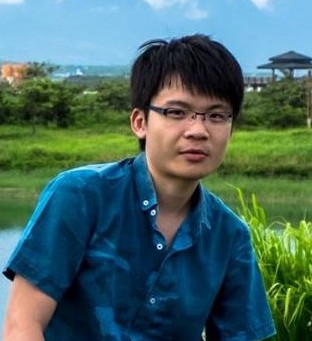 |
Tee Wei-Ven Post-Doctoral Research Fellow Email: teewv@bii.a-star.edu.sg Research Focus: Protein Function Modulation for Therapeutic Interventions |
Wei-Ven joined Bioinformatics Institute in 2016 for his doctoral study in Berezovsky group. After completing his PhD degree on computational modeling of protein allostery in 2020, he continued to work as Post-doctoral Research Fellow in the group. Wei-Ven was awarded the A*STAR Career Development Fund (CDF 2021) on designing allosteric drugs.
Research Interests
Wei-Ven’s primary research interests is two-fold: (i) towards understanding universal aspects of proteins, such as protein dynamics, evolution, and their role in allosteric regulation of protein function; (ii) utilizing fundamental principles of protein function and dynamics for diagnostics and therapeutic interventions, focusing on using advantages of allosteric mechanisms and drugs.
A*STAR celebrates International Women's Day

From groundbreaking discoveries to cutting-edge research, our researchers are empowering the next generation of female science, technology, engineering and mathematics (STEM) leaders.
Get inspired by our #WomeninSTEM